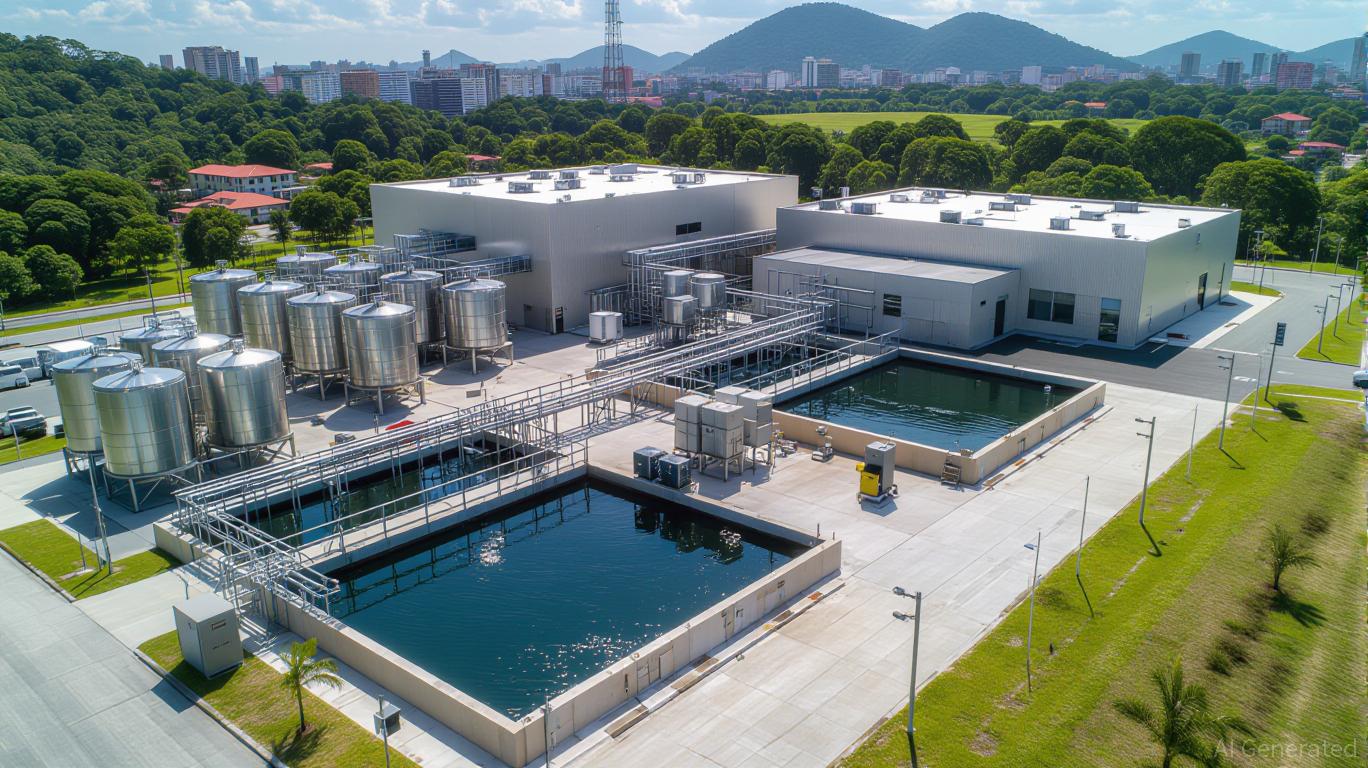Veolia’s advanced technologies set new standards for large-scale water reuse in Brazil
Published on by Water Network Research, Official research team of The Water Network in Case Studies
Veolia’s advanced technologies set new standards for large-scale water reuse in Brazil
SEE PRESS RELEASE ATTACHED
● Vitória Water Reclamation Station will be the world's first large-scale facility to convert a municipal wastewater treatment plant into a water reuse production station using high-performance membrane bioreactors and reverse osmosis by Veolia, world leader in water treatment technologies.
● Reclaiming 85% of municipal wastewater from the Camburi basin, the project supplies reliable water to industry — freeing up freshwater resources equivalent to the needs of 200,000 people. With a processing capacity of 450 l/s (38,880 m3 /d), it supports long-term industrial resilience and resource preservation.
● A landmark initiative that sets a new benchmark for sustainable water reuse in Brazil and Latin America, addressing growing water scarcity through Veolia’s circular, high-efficiency solutions.
The Water Crisis as a Catalyst for Innovation
Global water scarcity is no longer a distant threat but an urgent economic and environmental reality. By 2030, the world is expected to face a 40% gap between water demand and supply. In Brazil, where rapid industrialization and climate variability strain freshwater resources, the stakes are particularly high. Veolia's Vitória Water Reclamation Station (Vitória WRS) is a testament to the company's ability to transform this challenge into opportunity.

This project is not just a technical marvel—it's a blueprint for the future of water reuse. By converting a municipal wastewater treatment plant into a resource recovery hub, Veolia is demonstrating how cities and industries can decouple growth from freshwater extraction. The economic value is clear: industrial clients gain a stable water supply, municipalities avoid costly infrastructure expansions, and environmental impact is minimized.
Strategic Expansion and Financial Resilience
Veolia's success in Brazil is underpinned by a dual strategy: technological innovation and geographic diversification. The company's 2024 acquisitions in Alagoas—adding 15% to its waste management capacity—have expanded its footprint in Brazil's Northeast, a region facing acute water stress. These acquisitions, including three new EcoParks and advanced leachate treatment systems, align with Veolia's GreenUp plan, which emphasizes decarbonization and resource regeneration.
Financially, Veolia's Brazilian operations are proving resilient. The company's 30% stake acquisition in its Water Technology business from CDPQ in 2025 is projected to boost earnings per share (EPS) starting in 2026, signaling strong confidence in the sector's long-term viability. further underscores this momentum.
Industrial Demand and the Water Technology Market
The reuse market is expanding at a compound annual growth rate (CAGR) of 12.1%, projected to reach $68.4 billion by 2034. Veolia's projects in Brazil, such as the pulp plant's 9,550 cubic meters per hour water treatment system and the Santos Basin FPSO desalination project, are directly tapping into this growth. These projects leverage technologies like ZeeWeed™ ultrafiltration and PROflex™ reverse osmosis, which are critical for industries seeking to meet stringent environmental regulations while reducing operational costs.
For investors, the key takeaway is clear: Veolia is not just adapting to water scarcity—it's profiting from it. The company's ability to deliver high-recovery water treatment solutions, such as the 1,960 cubic meters per hour desalination systems for Petrobras, positions it as a leader in the industrial water reuse segment, a niche with strong margins and recurring revenue potential.
A Strategic Hedge for the Future
Water scarcity is a systemic risk with first-order economic consequences. As the Recycling Water Filtration Market grows from $2.38 billion in 2024 to $3.71 billion by 2030, companies like Veolia that offer end-to-end solutions—from municipal reclamation to industrial desalination—are uniquely positioned to benefit.
Media
Taxonomy
- Water Reuse & Recycling
- Water Reclamation
- Industrial Water Reuse
- water reuse - regulations and permitting
- water treatment
- Water and Wastewater
- Brazil